April 14, 2025 | 13:30 GMT +7
April 14, 2025 | 13:30 GMT +7
Hotline: 0913.378.918
April 14, 2025 | 13:30 GMT +7
Hotline: 0913.378.918
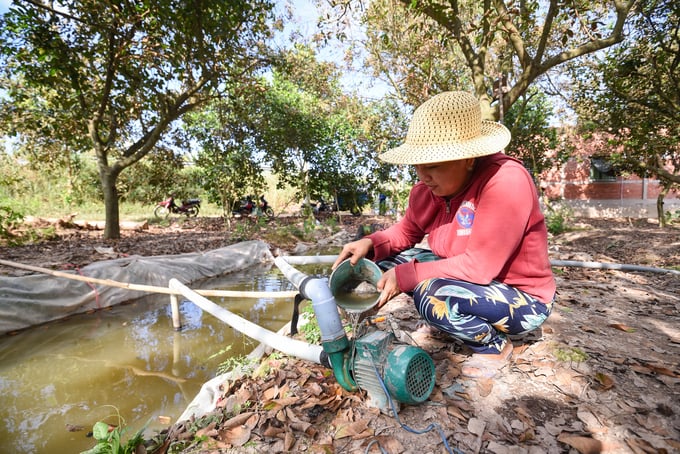
Severe drought and salinity in 2020 affected the rambutan growing area in Ben Tre. Photo: Tung Dinh.
The Ministry of Agriculture and Rural Development has just sent a document to the People's Committees of localities in the Mekong Delta region on strengthening solutions to cope with peak saltwater intrusion under the direction of the Prime Minister.
To proactively respond to the peak of saltwater intrusion, following the Prime Minister's direction, the Ministry of Agriculture and Rural Development requests the People's Committees of provinces and cities in the Mekong Delta region to direct and organize the implementation of the following contents urgently:
- Continue to strictly implement the Prime Minister's instructions on proactively responding to the risks of drought, water shortage, and saltwater intrusion; the Directive of the Minister of Agriculture and Rural Development on strengthening the implementation of solutions to prevent and against drought, water shortage, and saltwater intrusion to serve agricultural production and people's livelihood in the dry season of 2023 - 2024.
- Strengthen monitoring of salinity intrusion and water source forecast information provided by specialized meteorological and hydrological agencies and specialized agencies under the Ministry of Agriculture and Rural Development (Vietnam Institute of Water Resources Science provides the forecast information on water sources and saltwater intrusion weekly and when there are unexpected situations) as a basis for organizing appropriate response solutions.
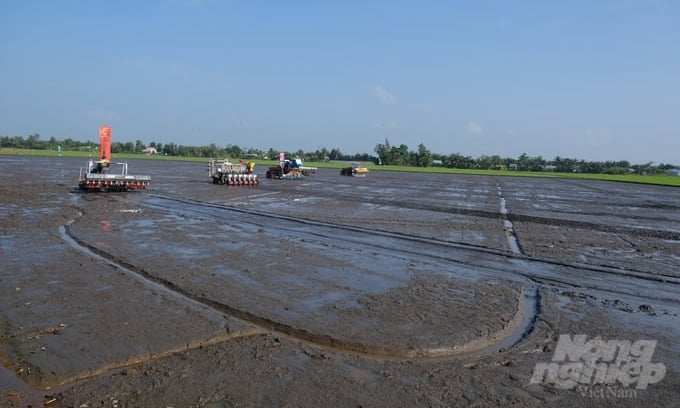
The Ministry of Agriculture and Rural Development recommends not sowing rice seeds in areas at risk of saltwater intrusion. Photo: TL.
In addition, we urgently advise people not to sow rice in areas that continue to be affected by saltwater intrusion and only to sow when it rains or when the water source is secure. Ensure stable supply and follow recommendations of specialized agencies and local authorities.
- Continue strengthening the reasonable operation of irrigation works to collect and store maximum fresh water in the canals, ponds, and low-lying areas to serve production and people's livelihood. In fruit-growing areas, continue to store water in dispersed ponds and lakes, ensuring sufficient water supply to maintain the minimum vitality of crops during the period affected by saltwater intrusion.
- Localities must urgently identify specific areas where people are at risk of lacking domestic water, have plans to ensure adequate water supply for people, and support people in organizing water collection and tools. Store water for domestic use. Do not let people lack domestic water or use domestic water of substandard quality.
Proactively use locally managed funding sources to urgently implement solutions to prevent and combat drought and saltwater intrusion, pay attention, install field pumping stations, build temporary dams, dig ponds, dredge Water intake, and canal system... In case of need, request the Prime Minister to grant financial.
- Regularly disseminate information about the saltwater intrusion situation on mass media and other media to local authorities, people, and relevant organizations to implement solutions to the effects of saltwater intrusion proactively.
In addition, the Department of Agriculture and Rural Development should be directed to regularly report the impact of salinity intrusion, as well as suggestions and recommendations to the Ministry of Agriculture and Rural Development (through the Department of Irrigation) to synthesize and report to government leaders.
In recent days, there has been prolonged heat in the Southern provinces. In some localities in the Mekong Delta, drought and saltwater intrusion have occurred, directly affecting production and people's lives. , many households have encountered difficulties in drinking water, especially in the coastal areas of the provinces: Ben Tre, Tien Giang, Soc Trang.
According to the National Center for Hydrometeorological Forecasting (Ministry of Natural Resources and Environment) and Southern Institute of Irrigation Sciences (Ministry of Agriculture and Rural Development), from March 10 to 15, 2024, It is likely that there will be a peak in saltwater intrusion, affecting freshwater sources in many localities in the Mekong Delta, especially the provinces of Tien Giang, Ben Tre, Hau Giang, Tra Vinh and Soc Trang.
To proactively respond to the risk of high saltwater intrusion and local freshwater shortages, previously, the Prime Minister requested Ministers of Ministries and Chairmen of People's Committees of provinces and centrally run cities in the Mekong Delta region. Long continues to closely monitor the situation and implement the Prime Minister's direction in Official Dispatch No. 04/CT-TTg dated January 15, 2024, on proactively responding to the risk of drought and water shortage and saltwater intrusion.
According to the Ministry of Agriculture and Rural Development, currently, saltwater intrusion in the Mekong Delta has appeared early, higher than the average for many years and in the same period in 2023, lower than the historical saltwater intrusion years of 2015 - 2016, 2019 - 2020. According to the National Center for Hydrometeorological Forecasting and specialized agencies under the Ministry of Agriculture and Rural Development, saltwater intrusion continues to remain high until the end of the dry season, with peak saltwater intrusion in Mekong Delta is likely to appear on March 10 - 14, March 24 - 28; in Vam Co and Cai Lon rivers from March 10 - 13, March 24 - 28, April 8 - 13, April 22 - 28.
Translated by Tuan Huy
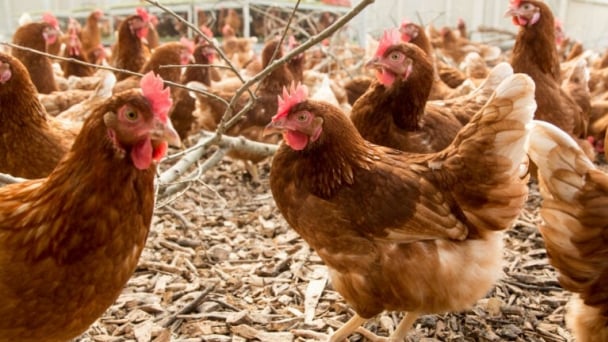
(VAN) The latest Business Benchmark on Farm Animal Welfare (BBFAW) reveals steady progress on farm animal welfare across the global food industry.

(VAN) Green credit is a financial policy that effectively supports environmentally friendly projects and activities today.
/2025/04/09/1049-2-165919_630.jpg)
(VAN) With a revenue of less than VND 30 billion/year, packaging producers are exempted from EPR liability under Decree No. 05/2025 newly issued.
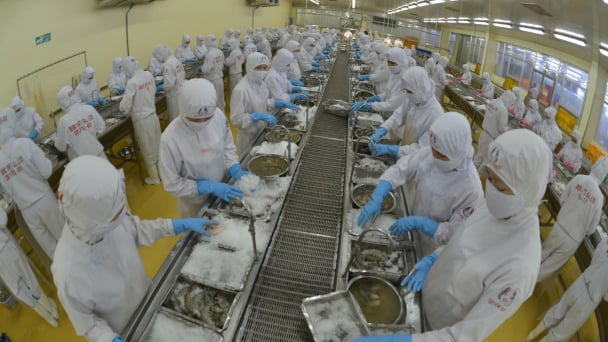
(VAN) Ministry of Agriculture and Environment has issued an Action Plan for sector's development in the coming period, aiming for a growth rate of 4% or higher and an export turnover of USD 65 billion.

(VAN) The 177th Session of the FAO Council opened on Monday at the Organization’s headquarters in Rome.
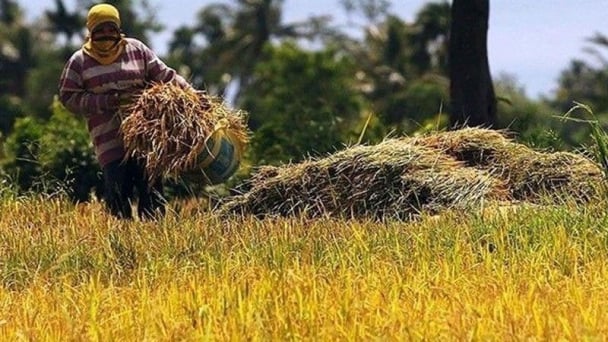
(VAN) In a statement, the Federation of Free Farmers (FFF) said the government must not be complacent over the reciprocal tariffs even if the Philippines will be slapped with the second lowest rate among US trade partners.

(VAN) On the morning of April 3, Prime Minister Pham Minh Chinh chaired a meeting with ministries following the United States' announcement of new tariff rates on imports from Vietnam.